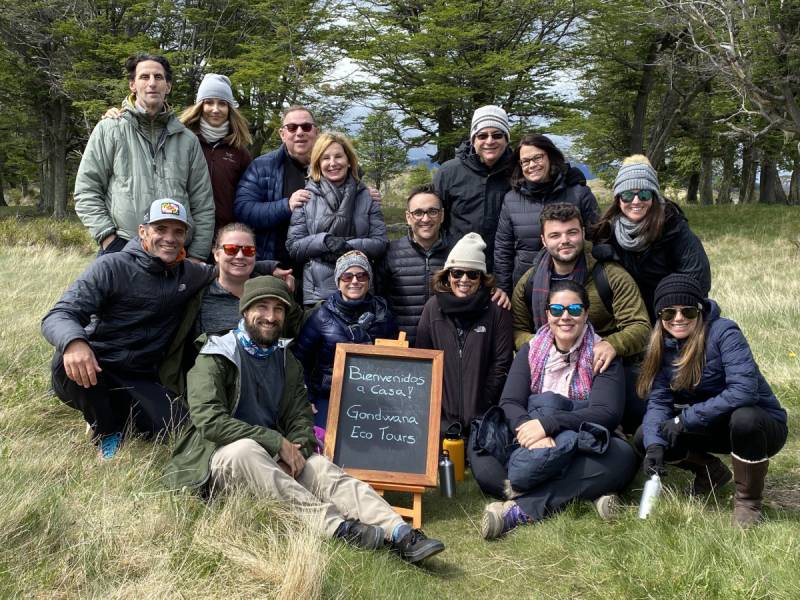Something’s Brewing: Visiting Tanzanian Coffee Plantations
Download Travel Details >PRIVATE & SMALL GROUP TOURS TO THE WORLD'S BEST DESTINATIONS
Join Us For A Safari In Tanzania

Discovering Tanzania Coffee Culture
For many people, coffee is more than a simple morning beverage – it’s a sensory experience, an energy booster, and a social ritual that brings people together. In Tanzania, African specialty coffee is firmly intertwined with the rich history and traditions of the regions where it is grown. Come with us as we explore Tanzanian coffee plantations, the mysterious bean’s deep roots, and the vibrant traditions of Tanzania coffee culture.
The Coffee Plant Arrives in Tanzania
How did coffee become one of Tanzania’s biggest exports? The coffee plant, which is believed to have originated in Ethiopia, was brought to Tanzania in the 16th century by migrating tribes. The Haya people, who lived in Northwestern Tanzania, were the first to cultivate coffee for food. These tribal people boiled the coffee cherries, mixed them with animal fat, rolled the mixture into small balls, and then consumed them as a quick and energizing snack.
As time passed, the role of coffee changed. It gained in popularity and was used in cultural functions, like tributes and religious rituals, changing the face of Tanzania coffee culture into something that resembles our modern affinity for the beverage. Today, coffee is grown on Tanzanian coffee plantations and is prized for its high quality and flavor profile. Tanzania’s rich volcanic soil, high altitudes, and climate contribute to the beans’ distinctive taste, making the country one of the most sought-after locations to grow African specialty coffee in the region.
What Makes Tanzanian Coffee So Special?
In Tanzania, coffee is deeply intertwined with the country’s social and cultural fabric. It is a traditional symbol of hospitality and community, but it is also highly prized as a lucrative commodity. Tanzanian coffee is enjoyed around the world, but what exactly makes this country’s beans stand out from other brands on the shelf?
- Ideal growing conditions: The soil in Tanzania is rich with volcanic ash, and high-altitude coffee-growing zones promote slow bean growth, which results in complex flavors in your cup!
- Distinct flavor profile: The flavor of Tanzanian coffee is influenced by growing conditions. The result is a medium-bodied coffee with fruity, wine-like flavors. Some Tanzanian coffee plantations even grow beans that display notes of black tea, spice, cedar, and chocolate.
- Peaberry coffee: This unique coffee is a result of coffee plants that form a single, round bean. Peaberry coffee is known for its full body, vibrant flavor, and fragrant aroma.
- High quality: A hallmark of Tanzanian coffee culture is the emphasis on high-quality beans. While other African specialty coffee is considered top-notch, Tanzanian coffee is heads and tails above the rest, delivering consistent high quality and rich, complex flavors.
The Key Coffee Producing Regions of Tanzania
Tanzania produces 30,000 to 40,000 metric tons of coffee annually. In 2022, the country produced $226 million worth of coffee, much of it for export. But where in Tanzania is this valuable commodity produced?
There are three main regions where you can find Tanzania coffee plantations within the country, as well as six regions that are not primarily known for coffee production – although you will find the crop produced there.
|
Region |
Type of African Specialty Coffee Grown |
|
This area, specifically around Moshi and Arusha, is renowned for its Tanzanian coffee plantations. Visitors will find many lodges on the plantation grounds, with opportunities to stay over on an extended trip and learn more about Tanzanian coffee culture. |
|
|
The Mbeya and Ruvuma regions in the south are important coffee-growing areas that focus on Arabica coffee, an African specialty coffee. |
|
|
Coffee farmers focus on the production of Robusta coffee beans west of Lake Victoria in the Kagera region. |
The Matengo Highlands, Iringa, Kigoma, Mbinga, Morogoro, and Ngara are also important coffee-growing areas in Tanzania. While much of the country’s coffee production comes from smallholder farmers, you can find many larger estates, including Tanzanian coffee plantations, scattered across the countryside. These larger estates often offer coffee tours, where visitors can learn about the country’s coffee production process – from bean to cup!
What Types of Farms Grow Coffee in Tanzania?
In Tanzania, a coffee plantation is a farm where coffee trees, typically Arabica or Robusta, are cultivated. Arabica is the dominant type of coffee grown in Tanzania and is often grown on the slopes of mountains like Kilimanjaro and Mount Meru, as well as in the Southern Highlands. Robusta coffee is predominantly grown in the western areas of the country. Tanzanian coffee plantations often use shade-grown methods, like intercropping with banana trees, to protect the coffee plants from direct sunlight, which improves the flavor and quality of the final product.
Tanzanian coffee plantations are simply large farms, where coffee is grown. In some areas, coffee is grown on estates, or by farmers in cooperatives focusing on African specialty coffee. Each venue has its differences, but they all play an important role in the cultivation of Tanzania coffee culture.
- Coffee Estates: These are typically larger farms, often with extensive infrastructure like processing facilities, drying areas, and even housing for workers. Coffee estates often handle the entire coffee production process, from cultivation to packaging for export.
- Tanzanian Coffee Plantations: This term might refer to an individual farm, a cooperative of small farmers, or a group of small farmers who pool their resources to process their coffee crop together. In Tanzania, many coffee farms, especially those that follow a cooperative model, will be referred to as plantations.
- Co-operatives: A significant portion of coffee production in Tanzania comes from smallholder farmers who belong to co-operatives. These co-operatives often have centralized processing facilities where members can bring their coffee cherries for processing, milling, and drying.
- Farmer Business Groups: This model is like a cooperative but is often focused on specific tasks like marketing or processing. This allows small farmers to pool resources and benefit from a cooperative model without bureaucracy.
If you’re interested in visiting a coffee farm to learn more about Tanzania coffee culture, it’s important to know that not all cooperatives or plantations welcome visitors. Instead, Tanzanian coffee estates generally offer tours for visitors, which allow you to learn more about the coffee farming process, including the growing, harvesting, and processing stages. And, if you’re lucky, your tour may just include a coffee tasting!
That’s a Wrap! Discovering Tanzania Through Its Coffee Culture
If you’re looking for a good cup of African specialty coffee, Tanzania is the perfect place to visit! From Tanzania coffee plantations to the country’s sprawling coffee estates, you’ll be able to sample coffee in a variety of flavors, including zesty lemon, chocolate, and caramel. Book a trip with a tour operator like Gondwana Ecotours to enjoy the incredible flavor profile of the country’s specialty brew as well as the complex rituals of Tanzania coffee culture today.

